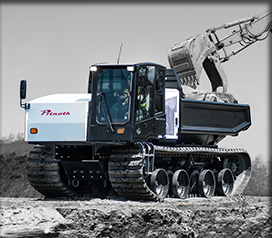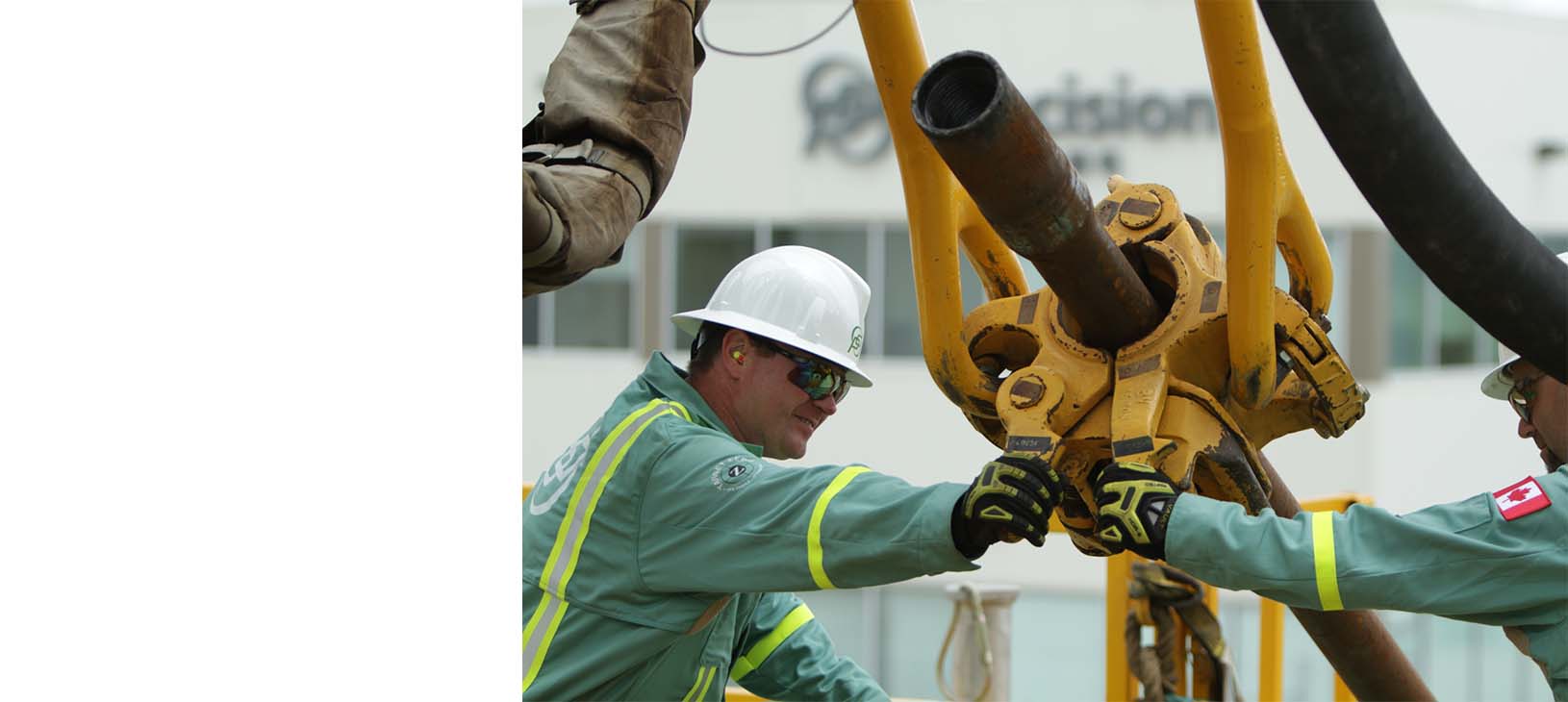A Comprehensive Guide to the Various Kinds Of Oil Field Equipment and Pipeline Equipment Available
The oil and gas market counts greatly on customized tools for reliable removal and transport. Various types of machinery, from drilling rigs to tank, play vital roles in this complex process. Each piece of equipment serves distinct features that add to total functional success. Recognizing these parts is important for anybody included in the field. As the market develops, so as well do the technologies that support it. What advancements are on the perspective?

Drilling Rigs: The Foundation of Oil Exploration
Drilling rigs function as the essential equipment in the domain name of oil exploration, allowing firms to gain access to hydrocarbon gets buried deep below the Planet's surface. These rigs are available in numerous types, including land rigs, offshore rigs, and mobile systems, each designed to operate in certain settings. Geared up with innovative innovation, piercing rigs can penetrate geological formations with accuracy, making certain efficient source removal. The structural honesty and functional capabilities of these rigs are important, as they must endure severe problems and significant stress. In addition, the choice of an exploration rig affects the total project expense and timeline, making it a vital consideration for oil business looking for to maximize their exploration efforts and maximize efficiency in their procedures.
Pumps: Vital for Fluid Activity
In the oil extraction process, the function of pumps is substantial, assisting in the motion of liquids throughout different phases of manufacturing. Pumps are crucial for transporting crude oil, water, and other liquids from below ground storage tanks to the surface area and afterwards with pipelines to refineries. They come in various kinds, including centrifugal, positive variation, and completely submersible pumps, each serving details objectives based on the liquid features and functional requirements. Centrifugal pumps are commonly made use of for their effectiveness in high-flow applications, while positive variation pumps master handling thick fluids. The selection of pump effects total effectiveness, operational safety and security, and maintenance prices. Appropriate selection and upkeep of pumps are important for optimizing manufacturing and reducing downtime in oil area operations.
Valves: Managing Flow and Pressure

Shutoffs play an important function in taking care of the circulation and stress of fluids within oil fields and pipelines. Different kinds of shutoffs offer distinct applications, each developed to meet details features fundamental for efficient operation - Superior Rentals reviews. Recognizing the features and usages of these shutoffs is essential for optimizing system performance and safety
Sorts of Valves
Important elements in oil field operations, valves play an important function in managing the flow and pressure of fluids within pipelines and equipment. Various types of shutoffs are made use of to fulfill the varied requirements of oil and gas production. Typical types include gate shutoffs, which give a straight-line circulation and very little pressure drop; world shutoffs, recognized for their strangling abilities; and ball shutoffs, identified for their fast on/off control. Furthermore, check valves avoid backflow, while butterfly shutoffs use a light-weight service for regulating circulation. Each shutoff type is made with details materials and configurations to withstand the rough conditions frequently found in oil areas, making sure dependability and efficiency in operations. Recognizing these kinds is essential for effective system monitoring.
Valve Applications and Features
While numerous sorts of valves offer distinctive purposes, their primary applications focus on regulating flow and stress within oil and gas systems. Valves such as gateway, globe, and round valves manage fluid activity, guaranteeing peak efficiency and safety. Gateway valves are generally utilized for on/off control, giving minimal circulation resistance. World valves, on the various other hand, offer exact circulation policy, making them ideal for throttling applications. Sphere shutoffs are favored for their quick procedure and tight sealing capacities. On top of that, stress safety valve are vital for preventing system overpressure, protecting tools integrity. In general, the ideal selection and application of shutoffs boost operational effectiveness, making certain the dependable transport of oil and gas with pipes and handling facilities.
Compressors: Enhancing Gas Transport
Compressors play a crucial role in the effective transport of all-natural gas, making certain that it moves smoothly through pipelines over fars away. These tools raise the stress of you could try this out natural gas, allowing it to conquer friction and elevation changes within the pipeline system. In addition, compressors help with the balancing of supply and demand, fitting changes in usage and manufacturing prices. Numerous sorts of compressors are used in the sector, consisting of centrifugal, reciprocating, and rotating screw compressors, each offering unique benefits based on look at more info the operational demands. Routine maintenance of these compressors is vital to maximize efficiency and minimize downtime, inevitably adding to a reliable gas transportation network. Their critical feature emphasizes the relevance of compressors in the general oil and gas facilities.
Storage Tanks: Safe and Effective Fluid Management
Efficient transportation of gas depends on numerous support group, among which is the appropriate administration of storage space containers. These tanks play a necessary function in securely having fluids, ensuring that operational effectiveness is kept while lessening environmental risks. Constructed from sturdy products, they are made to stand up to high stress and destructive components. Effectively sized and strategically situated, tank help with the smooth flow of all-natural gas and other liquids, avoiding bottlenecks in supply chains. Regular maintenance and surveillance are important to discover leakages or structural issues, promoting security and compliance with regulative criteria. Inevitably, the efficient management of storage containers is critical for the total integrity and dependability of the oil and gas industry's fluid handling systems.
Pipeline Systems: Facilities for Transport
Pipeline systems function as the backbone of the oil and gas market, assisting in the effective transport of hydrocarbons over large ranges. These systems are composed of various elements, consisting of pipelines, valves, pumps, and compressors, all thoroughly created to assure smooth flow. The materials used in pipeline building and construction, often steel or high-density polyethylene, are picked for durability and resistance to corrosion. Pipeline networks can span across land and water, connecting production websites to refineries and distribution. Additionally, advanced modern technology enables real-time tracking of flow prices and pressure levels, enhancing operational performance. The calculated positioning of these pipes reduces environmental effect while optimizing source accessibility, consequently playing a crucial duty in conference energy needs globally.
Safety And Security Equipment: Making Sure Employee and Environmental Security
The operation of pipeline systems, while essential for energy transportation, likewise presents substantial safety difficulties for employees and the setting. Safety tools plays a substantial duty in mitigating these threats. Individual protective tools (PPE) such as headgears, gloves, and non-slip shoes safeguards workers from physical hazards. In addition, gas discovery systems keep an eye on for leaks, guaranteeing that damaging compounds do not position a threat to employees or the bordering environment. Emergency shutdown systems are vital for quickly halting operations throughout a crisis, avoiding possible calamities. Spill control materials, consisting of absorbents and barriers, are basic for lessening ecological impact. Overall, investing in all-inclusive safety and security devices is navigate to these guys crucial for keeping operational honesty and safeguarding both workers and the atmosphere in the oil and gas industry.

Frequently Asked Concerns
How Do I Pick the Right Oil Field Equipment for My Job?
Choosing the ideal oil area tools includes reviewing job specifications, budget plan restrictions, and operational needs. Take into consideration elements such as equipment reliability, compatibility with existing systems, and the vendor's online reputation to assure peak performance and safety.
What Are the Maintenance Demands for Oil Field Equipment?
Upkeep needs for oil field devices include regular inspections, lubrication, and prompt repair work. Operators ought to additionally follow supplier standards, display efficiency metrics, and guarantee conformity with safety and security laws to boost durability and performance.

Exactly How Can I Make Certain Conformity With Environmental Laws?
To guarantee conformity with environmental laws, companies have to conduct normal audits, implement ideal techniques, buy training, preserve proper documentation, and remain updated on legislation (Superior Oilfield Rentals). Partnership with environmental firms can also improve adherence to guidelines
What Is the Average Life Expectancy of Pipeline Equipment?
The ordinary life expectancy of pipeline equipment usually ranges from 20 to 50 years, depending upon factors such as material quality, environmental problems, and upkeep methods. Routine assessments can considerably affect longevity and functional effectiveness.
Exactly how Do I Safely Transfer Oil Field Equipment to Remote Locations?
Moving oil area devices to remote locations needs careful planning, including route assessment, securing authorizations, using ideal vehicles, and making certain safety protocols are adhered to. Proper training and communication among crews are important for successful transportation.